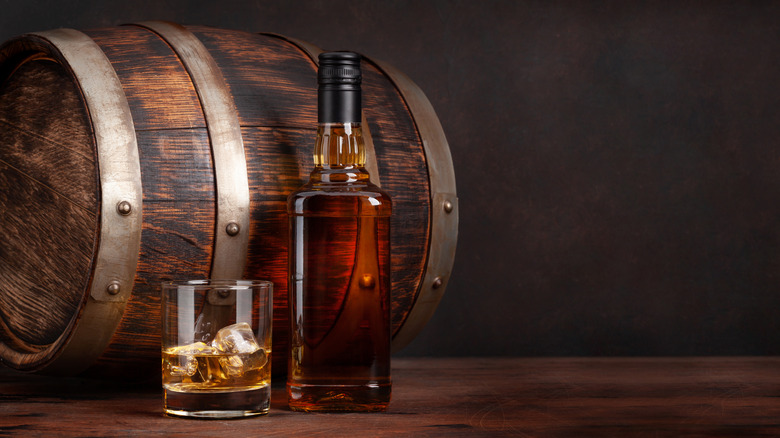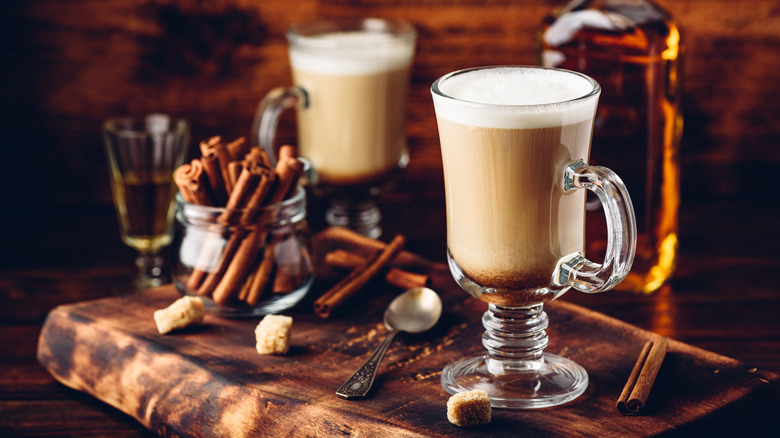The Connection Between Aging Irish Whiskey And Bourbon
In the world of whiskey, things can get a little confusing. Whiskey comes in several forms, and two of those forms include bourbon whiskey and Irish whiskey. Labels include more than just choosing a name. The standards for each type are strict and highly regarded. Although slight changes can be made to make bottles unique, specific rules that have stood for hundreds of years have to be adhered to, namely the mash, the barrel, and the aging process.
To earn the designation bourbon, the whiskey must be at least 51% corn (up to 80%) in the mash bill. The mash bill is the mix of grains used to make the whiskey. The bourbon must age at least two years in new oak barrels that have been charred, though most bourbons age longer. Nothing is added as flavoring to the bourbon. Every note you taste comes from the mash bill, the barrel, and the length of time aged. Bourbon is enjoyed neat or used in cocktails like the ever-popular bourbon old-fashioned.
Irish whiskey, on the other hand, has some different requirements than bourbon. However, sometimes Irish whiskey requires a little help from its whiskey friend, bourbon. Bourbon and Irish whiskey, have an interesting connection when it comes to the aging process.
Irish whiskey needs bourbon barrels
According to Masterclass, an Irish whiskey mash must be made up of malt, barley, and cereal grains. There are no percentages required. Once the distilling process is complete, Irish whiskey must be aged in wooden casks (also called barrels) for at least three years, and most importantly, it must come from Ireland. You can't make Irish whiskey in another country, for obvious reasons. Irish whiskey is enjoyed neat, on the rocks, or in a warm drink like Irish coffee.
Here's where Irish whiskey and bourbon have a little bit in common. Men's Journal explains that Irish whiskey is most often aged in American bourbon whiskey barrels (ex-barrels that have held bourbon) to lend the wonderful citrus, vanilla, and caramel notes of bourbon to the Irish whiskey. It's sort of a "tip of the hat" from Irish whiskey to bourbon. More importantly, it's the perfect way to join several outstanding notes and flavors together.

